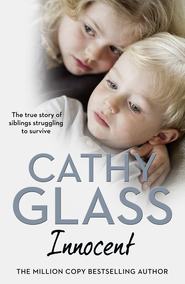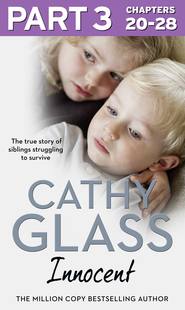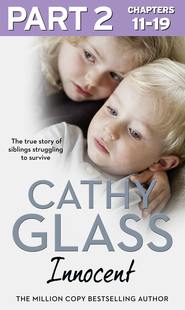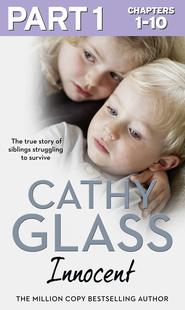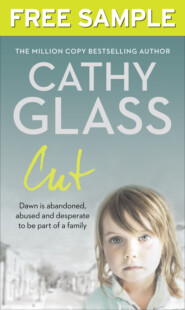По всем вопросам обращайтесь на: info@litportal.ru
(©) 2003-2024.
✖
The Saddest Girl in the World
Настройки чтения
Размер шрифта
Высота строк
Поля
Also by Cathy Glass (#litres_trial_promo)
About the Publisher (#litres_trial_promo)
Prologue (#ulink_87efa8b3-3c5e-5aed-9e71-aa4859bb1ec3)
This is the story of Donna, who came to live with me when she was ten. At the time I had been fostering for eleven years, and it is set before I had fostered Lucy, whom I went on to adopt. When Donna arrived, my son Adrian was ten and my daughter Paula was six; the impact Donna had on our lives was enormous, and what she achieved has stayed with us.
Chapter One Sibling Rivalry (#ulink_d6d1190d-099e-5a92-bd71-5dc768e9c806)
It was the third week in August, and Adrian, Paula and I were enjoying the long summer holidays, when the routine of school was as far behind us as it was in front. The weather was excellent and we were making the most of the long warm days, clear blue skies and the chance to spend some time together. Our previous foster child, Tina, had returned to live with her mother the week before and, although we had been sorry to see her go at the end of her six-month stay with us, we were happy for her. Her mother had sorted out her life and removed herself from a highly abusive partner. Although they would still be monitored by the social services, their future looked very positive. Tina's mother wanted to do what was best for her daughter and appeared to have just lost her way for a while — mother and daughter clearly loved each other.
I wasn't expecting to have another foster child placed with me until the start of the new school term in September. August is considered a ‘quiet time’ for the Looked After Children's teams at the social services, not because children aren't being abused or families aren't in crises, but simply because no one knows about them. It is a sad fact that once children return to school in September teachers start to see bruises on children, hear them talk of being left home alone or not being fed, or note that a child appears withdrawn, upset and uncared for, and then they raise their concerns. One of the busiest times for the Looked After Children's team and foster carers is late September and October, and also sadly after Christmas, when the strain on a dysfunctional family of being thrust together for a whole week finally takes its toll.
It was with some surprise, therefore, that having come in from the garden, where I had been hanging out the washing, to answer the phone, I heard Jill's voice. Jill was my support social worker from Homefinders Fostering Agency, the agency for whom I fostered.
‘Hi, Cathy,’ Jill said in her usual bright tone. ‘Enjoying the sun?’
‘Absolutely. Did you have a good holiday?’
‘Yes, thanks. Crete was lovely, although two days back and I'm ready for another holiday.’
‘Is the agency busy, then?’ I asked, surprised.
‘No, but I'm in the office alone this week. Rose and Mike are both away.’ Jill paused, and I waited, for I doubted she had phoned simply to ask if I was enjoying the sun or lament the passing of her holiday. I was right. ‘Cathy, I've just had a phone call from a social worker, Edna Smith. She's lovely, a real treasure, and she is looking to move a child — Donna, who was brought into care at the end of July. I immediately thought of you.’
I gave a small laugh of acknowledgement, for without doubt this prefaced trouble. A child who had to be moved from her carer after three weeks suggested the child had been acting out and playing up big time, to the point where the carer could no longer cope.
‘What has she done?’ I asked.
It was Jill's turn to give a small laugh. ‘I'm not really sure, and neither is Edna. All the carers are saying is that Donna doesn't get along with her two younger brothers. The three of them were placed together.’
‘That doesn't sound like much of a reason for moving her,’ I said. Children are only moved from a foster home when it is absolutely essential and the placement has irretrievably broken down, for clearly it is very unsettling for a child to move home.
‘No, that's what I said, and Edna feels the same. Edna is on her way to visit the carers now and see what's going on. Hopefully she'll be able to smooth things over, but is it OK if I give her your number so that she can call you direct if she needs to?’
‘Yes, of course,’ I said. ‘I'll be in until lunchtime, and then I thought I would take Adrian and Paula to the park. I'll have my mobile with me, so give Edna both numbers. I assume that even if Donna has to be moved there won't be a rush?’
‘No, I shouldn't think so. And you're happy to take her, if necessary?’
‘Yes. How old is she?’
‘Ten, but I understand she is quite a big girl and looks and acts older than her years.’
‘OK, no problem. Hopefully Edna can sort it out if it's only sibling rivalry, and Donna won't have to move.’
‘Yes,’ Jill agreed. ‘Thanks. Enjoy the rest of your day.’
‘And you.’
She sighed. ‘At work?’
I returned to the garden to finish hanging out the washing. Adrian and Paula were in the garden, playing in the toy sandpit. While Paula was happy to sit at the edge of the sandpit and make little animal sand shapes with the plastic moulds, Adrian was busy transporting the sand with aid of a large plastic digger to various places on the lawn. There were now quite sizeable hills of sand dotted on the grass, as if some mischievous mole had been busy underground. I knew that the sand, now mixed with grass, would not be welcomed back into the sandpit by Paula, who liked the sand, as she did most things, clean.
‘Try to keep the sand in the sandpit. Good boy,’ I said to Adrian as I passed.
‘I'm building a motorway,’ he said. ‘I'm going to need cement and water to mix with the sand, and then it will set hard into concrete.’
‘Oh yes?’ I asked doubtfully.
‘It's to make the pillars that hold up the bridges on the motorway. Then I'm going to bury dead bodies in the cement in the pillar.’
‘What?’ I said. Paula looked up.
‘They hide dead bodies in the cement,’ Adrian confirmed.
‘Whoever told you that?’
‘Brad at school. He said the Mafia murder people who owe them money, and then put the dead bodies in the pillars on the motorway bridges. No one ever finds them.’
‘Charming,’ I said. ‘Perhaps you could build a more traditional bridge without bodies. And preferably keeping the sand in the sandpit.’
‘Look!’ he continued, unperturbed. ‘I've already buried one body.’
I paused from hanging up the washing as Adrian quickly demolished one of the molehills of sand with the digger to reveal a small doll caked in sand.
‘That's mine!’ Paula squealed. ‘It's Topsy! You've taken her from my doll's house!’ Her eyes immediately misted.
‘Adrian,’ I said, ‘did you ask Paula if you could borrow Topsy and bury her in sand?’
‘She's not hurt,’ he said, brushing off the sand. ‘Why's she such a baby?’
‘I'm not a baby,’ Paula wailed. ‘You're rotten!’
‘OK, OK,’ I said. ‘Enough. Adrian, clean up Topsy and give her back to Paula. And please ask your sister next time before you take her things. If you want to bury something, why not use your model dinosaurs? Dinosaurs are used to being buried: they've been at it for millions of years.’
‘Cor, yes, that's cool,’ Adrian said with renewed enthusiasm. ‘I'll dig in the garden for dinosaur fossils!’ On his hands and knees, he scooped Topsy up in the digger and deposited her in Paula's lap, and then headed for the freshly turned soil in a flowerbed that I had recently weeded. I thought that if Edna couldn't smooth over the sibling rivalry between Donna and her younger brothers and Donna did come to stay, she would be in very good company, and would soon feel most at home.
I made the three of us a sandwich lunch, which we ate in the garden under the shade of the tree; then I suggested to Adrian and Paula that we went to our local park for an hour or so. The park was about a ten-minute walk away, and Adrian wanted to take his bike and Paula her doll's pram. I asked Adrian to go to the shed at the bottom of the garden and get out the bike and doll's pram while I took in the dry washing and the lunch things, and closed the downstairs windows. Since my divorce, Adrian, in small ways, had become the man of the house, and although I would never have put on him or given him responsibility beyond his years, having little ‘man’ jobs to do had helped ease the blow of no longer having his father living with us, as did seeing him regularly.
It was quite safe for Adrian and Paula to go into the shed: anything dangerous like the shears, lawn feed and weedkiller was locked in a cupboard, and I had the key. Apart from being necessary for my own children's safety, this was an essential part of our ‘safer caring policy’, which was a document all foster carers had to draw up and follow, and detailed how the foster home was to be kept safe for everyone. Each year Jill, my support social worker, checked the house and garden for safety, as part of my annual review. The garden had to be enclosed by sturdy fencing, the side gate kept locked, drains covered and anything likely to be hazardous to children kept locked away. The safety checklist for the house itself grew each year. Apart from the obvious smoke alarms, stair gates (top and bottom) if toddlers were being fostered, the locked medicine cupboard high on the wall in the kitchen, and the plug covers or circuit breaker, there were also now less obvious requirements. The banister rails on the stairs had to be a set distance apart so that a small child couldn't get their head, arm or leg stuck in the gap; the glass in the French windows had had to be toughened in case a child ran or fell into them; and the thermostats on the radiators had to be set to a temperature that could never burn a young child's delicate skin. It is true to say that a foster carer's home is probably a lot safer than it would be if only the carer's own children were living there.
‘And don't forget to close the shed door, please, Adrian,’ I called after him. ‘We don't want that cat getting in again.’
‘Sure, Mum,’ he returned, for he remembered, as I did, the horrendous smell that had greeted us last week after a tomcat had accidentally got locked in overnight; the smell still hadn't completely gone, even after all my swabbing with disinfectant.
‘Sure, Mum,’ Paula repeated, emulating Adrian, having forgiven him. I watched as Adrian stopped and waited for Paula to catch up. He held her hand and continued down the garden, protectively explaining to her that she could wait outside the shed while he got her pram so that she wouldn't have to encounter the big hairy spiders that lurked unseen inside. Ninety per cent of the time Adrian and Paula got along fine, but like all siblings occasionally they squabbled.
Half an hour later we were ready to go. The bike and doll's pram, which we had brought in through the house to save unpadlocking the side gate, were in the hall. I had my mobile and a bottle of water each for the children in my handbag, and my keys for chub-locking the front door were in my hand. Then Paula said she wanted to do a wee now because she didn't like the toilets in the park because of the spiders. Adrian and I waited in the hall while she went upstairs, and when she returned five minutes later we were finally ready for off. I opened the front door, Adrian manoeuvred his bike out over the step, and Paula and I were ready to follow with her doll's pram when the phone on the hall table started ringing.
Другие электронные книги автора Cathy Glass
Innocent




 0
0






